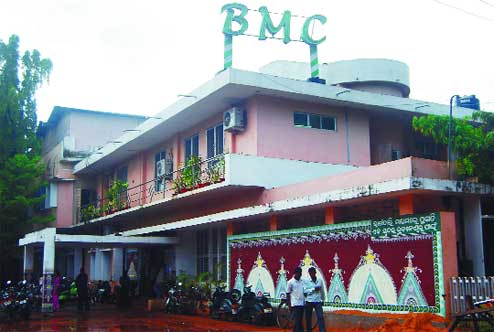Bhubaneswar, Oct. 27: The pollution control board has admitted that permissible noise levels were violated during Dussehra this time. But no action was taken against the violators.
Asked why, an official of the twin cities police said it was "difficult" to penalise them, because there were so many violators during the festive season.
A pollution control board official admitted that the only way to control the violators was by generating awareness.
The violation of noise pollution norms during the Pujas is especially worrisome for the board and the cops with Diwali and Kali Puja round the corner. "We have banned bursting crackers after 10pm and also asked the police to keep a check on and impose fines on the violators. We will also carry out an awareness drive to sensitise people about noise pollution," said D.K. Behera, senior environmental scientist with the board. He added that the focus would be monitoring and controlling both noise and air pollution during Diwali.
The Odisha State Pollution Control Board monitored noise pollution levels before and during the Pujas at the four different locations in the city. The data submitted by the state pollution control board to the state government and the central pollution control board has revealed that the level of noise was over 80 decibel at three of the four places during the peak hours. The maximum permissible sound limit in the city during the festive season is 75 decibel.
A rise of 10 decibels almost doubles the noise sensed by our ears.
According to the Noise Pollution (Regulation and Control) Rules of 2000, which was amended in 2012, the noise level at market places should remain below 65 decibel between 6am to 10pm, but a relaxation of 10 decibel is allowed during festive occasions.
The rules give autonomy to the pollution control boards of different states to decide on standard norms based on location. Accordingly, the pollution control board here had fixed the standard limit between 50 and 75 decibels at its four monitoring stations in Rasulgarh, Saheed Nagar, Nayapalli and Unit VI.
Despite the relaxation by 10 decibels, most of the puja pandals in the city violated the noise pollution norms. According to the board's data, the noise level at Rasulgarh, categorised as an industrial area, on October 11 was around 85 decibel between 6am and 10pm against the permissible 75 decibels. The noise level at Saheed Nagar, categorised as a commercial area, was around 82.2 decibel against the standard norms of 65 decibel for this area.
"We had installed noise monitoring devices at Rasulgarh, Saheed Nagar, Nayapalli and Unit VI. We collected data and found that the noise level at most of these locations went beyond the standard limits. We have submitted the data to central pollution control board and the state government for their consideration," said senior environmental scientist D.K. Behera.
The board also collected data at night between 10pm and 12am. The data revealed that the noise level at Rasulgarh during the night hours on October 11 was 66 decibel against the limit of 70 decibel. The same at Saheed Nagar was at 63.3 decibel against the 55-decibel limit.
Saheed Nagar resident Priyanka Maharana said it was torturous being home during Dusshera because of continuous noisy cultural programmes held by the puja committee here. "The noise during the Pujas is almost unbearable. It is difficult to even talk with someone because of it. The administration should really do something about this," said Maharana, who lives close to the Saheed Nagar Puja Mandap.
To further control noise pollution during festive season, the pollution control board had also imposed a ban on disc jockeys (DJs), but some of the puja committees violated this ban too. "We had asked all the committees not to bring in DJs as it is one of the major reasons of noise pollution, but many of them did not abide by this," said an official of the board.
Rasulgarh Puja Committee member Tukuna Baliarsingh said festive seasons were meant to be loud, as people would not want to celebrate the occasion in silence. "We abided by all the norms and reduced the volumes of our speakers during the cultural programmes. However, controlling the noise during idol immersion was difficult," said Baliarsingh.
Some residents, such as Pokhariput's Bijaynanda Debta, however, said they would miss the noise that comes with celebrations during the Pujas. "This festival comes once a year. The celebration and noise are part and parcel of the celebrations. It would be dull without the DJs and loudspeakers. But it is, however, necessary for the sound levels to be controlled as too much noise could invite health problems in terms of hearing loss and irritation," said Debta, who is a government employee.
The pollution control board aims to keep monitoring noise pollution. "The monitoring of noise pollution will help us take measures to control it in the upcoming festival seasons," said an official of the board, adding this could be controlled only by generating awareness.
Asked why nobody was penalised despite the violations during the Pujas, an official of the twin cities police said: "It is difficult to fine so many people especially during festival times. However, we will keep a lookout for violators during Diwali and penalise them."
Environmentalist Durga Prasad Mishra asked for strict action against the violators. "This kind of loud, continuous noise could affect the hearing power and cause severe irritation, especially to the elderly and ailing. If the administration wants it to be controlled, they have to punish the violators," said Mishra.











